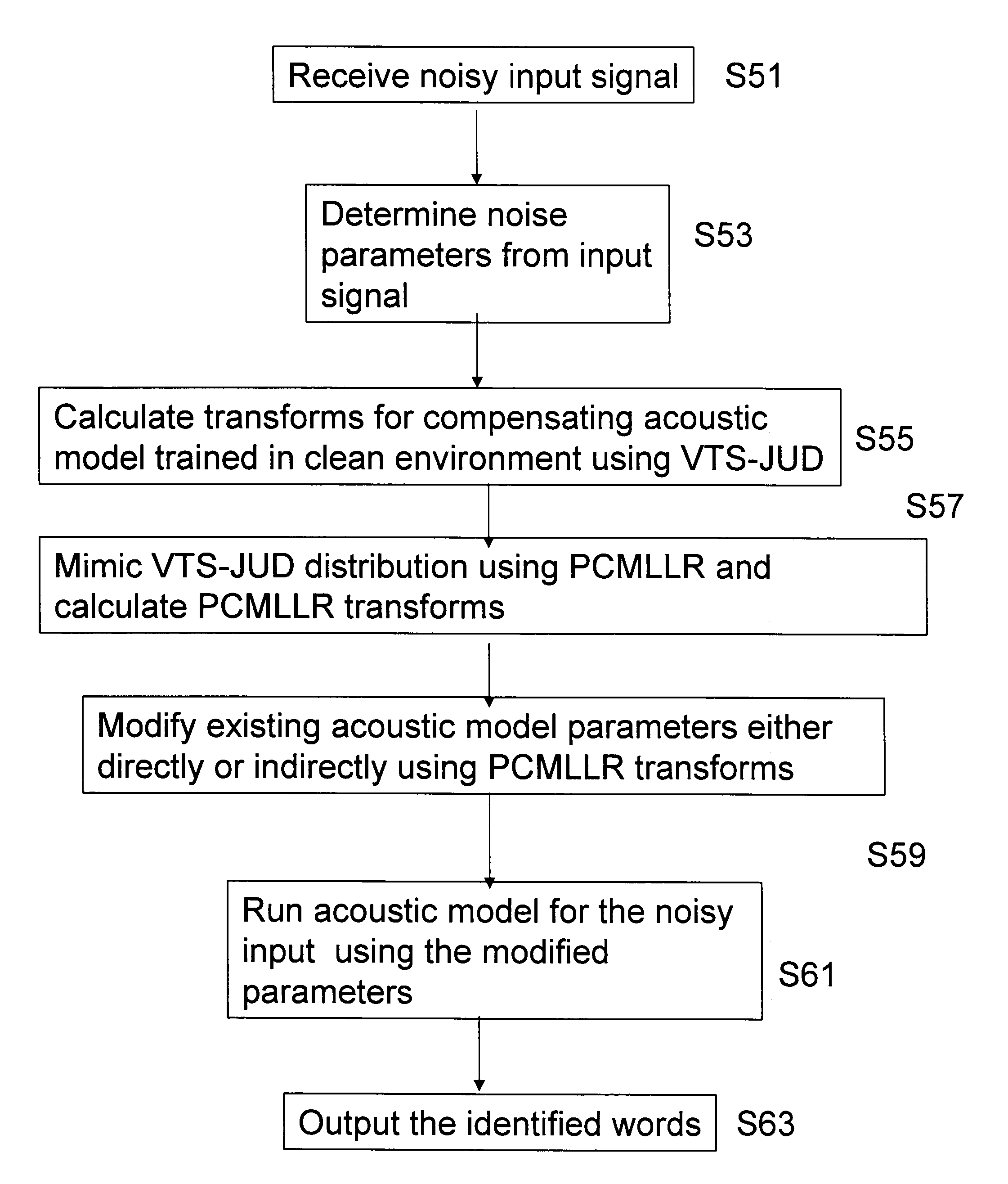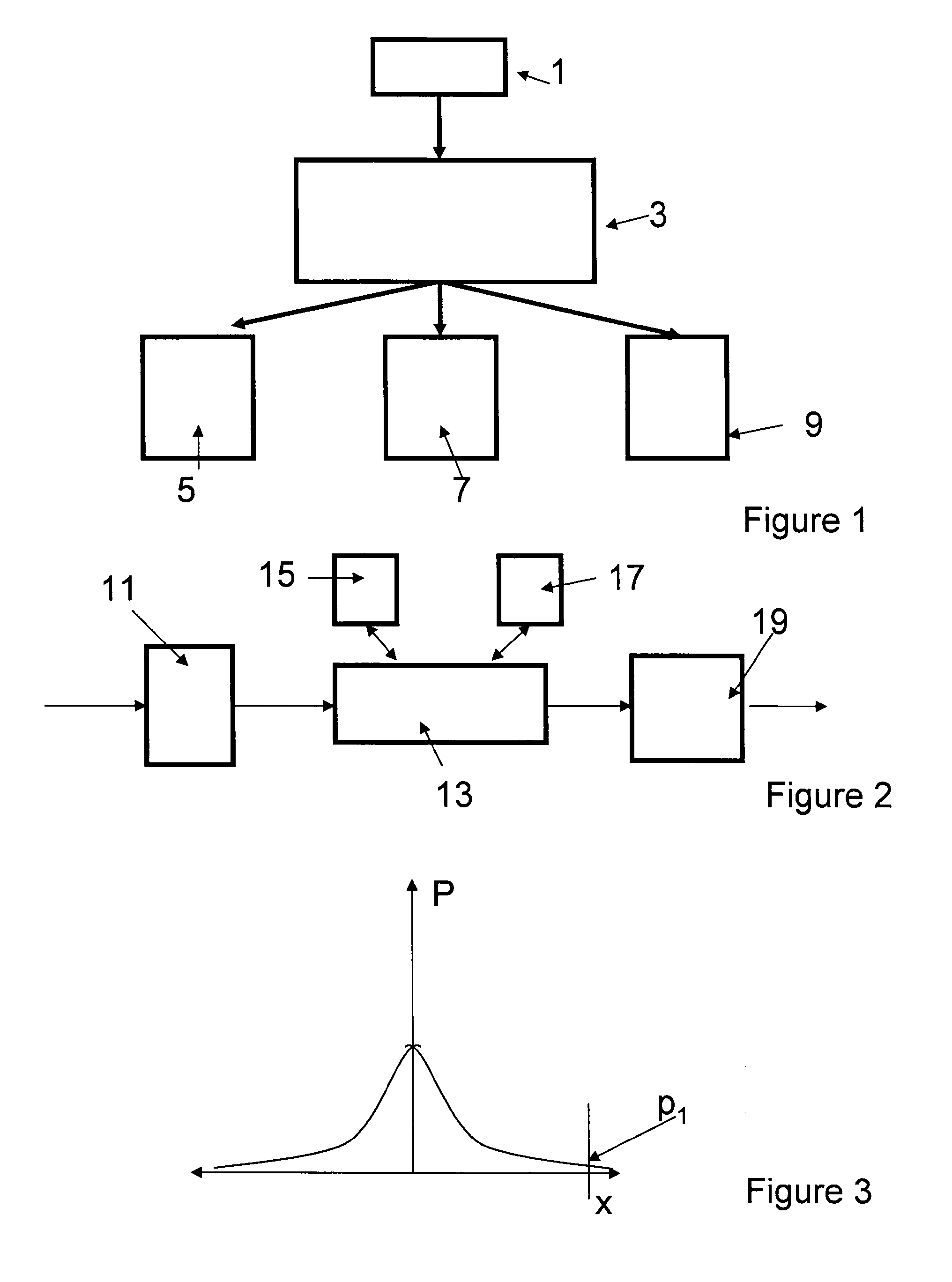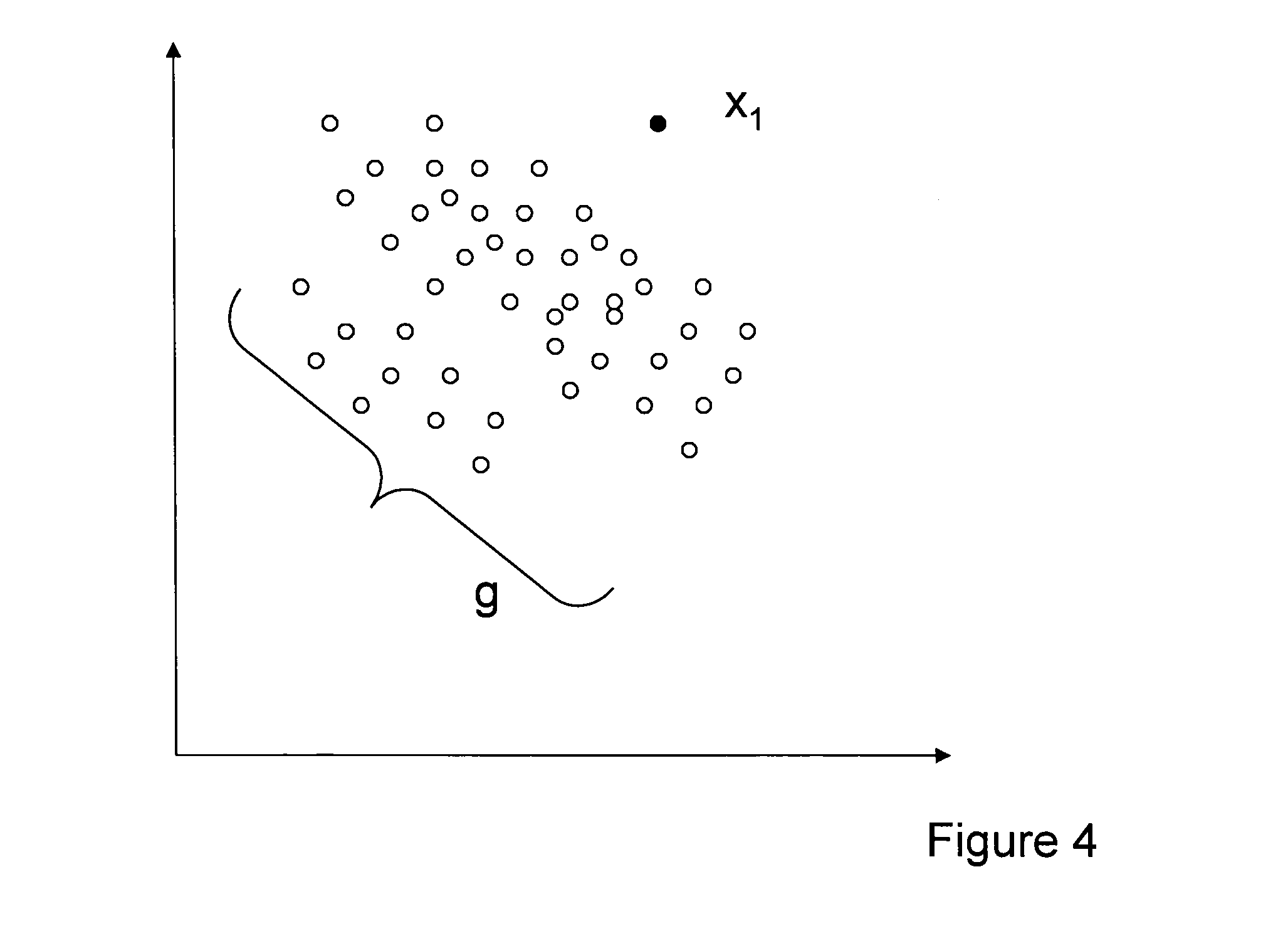Speech recognition system and method
a speech recognition and speech technology, applied in the field of pattern recognition, can solve the problems of high computational cost, relatively noisy environment, and system use, and achieve the effect of reducing computation cos
- Summary
- Abstract
- Description
- Claims
- Application Information
AI Technical Summary
Benefits of technology
Problems solved by technology
Method used
Image
Examples
Embodiment Construction
[0079]FIG. 1 is a schematic of a very basic speech recognition system. A user (not shown) speaks into microphone 1 or other collection device for an audio system. The device 1 could be substituted by a memory which contains audio data previously recorded or the device 1 may be a network connection for receiving audio data from a remote location.
[0080]The speech signal is then directed into a speech processor 3 which will be described in more detail with reference to FIG. 2.
[0081]The speech processor 3 takes the speech signal and turns it into text corresponding to the speech signal. Many different forms of output are available. For example, the output may be in the form of a display 5 which outputs to a screen. Alternatively, the output could be directed to a printer or the like. Also, the output could be in the form of an electronic signal which is provided to a further system 9. For example, the further system 9 could be part of a speech translation system which takes the outputte...
PUM
 Login to View More
Login to View More Abstract
Description
Claims
Application Information
 Login to View More
Login to View More - R&D
- Intellectual Property
- Life Sciences
- Materials
- Tech Scout
- Unparalleled Data Quality
- Higher Quality Content
- 60% Fewer Hallucinations
Browse by: Latest US Patents, China's latest patents, Technical Efficacy Thesaurus, Application Domain, Technology Topic, Popular Technical Reports.
© 2025 PatSnap. All rights reserved.Legal|Privacy policy|Modern Slavery Act Transparency Statement|Sitemap|About US| Contact US: help@patsnap.com



